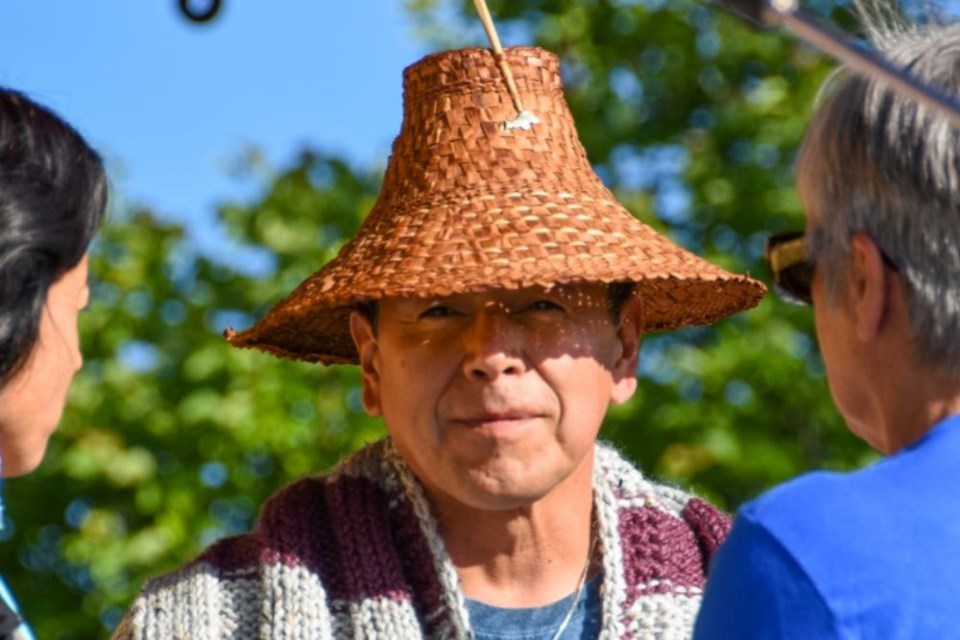The chief of the Kwikwetlem First Nation is praising a decision by Port Moody council Tuesday to begin working with neighbouring cities and Indigenous communities to change the name of Dewdney Trunk Road.
Ed Hall said he supports the name change that’s being advocated by grade 9 social studies students at Dr. Charles Best Secondary School in Coquitlam and will now be advanced by Port Moody.
He said the students’ work to research the conduct of Edgar Dewdney, after whom the thoroughfare is named, and then contact municipal, provincial and federal leaders with their concerns, give him hope for the future.
Dewdney is known to have used his position as a government official in charge of Indian Affairs in the late 1800s to withhold food from Indigenous people in order to gain concessions in treaty negotiations.
“The students are going to be our future leaders,” he said of their efforts to get a new name for the road that runs parallel to Lougheed Highway from Port Moody, through Coquitlam, Maple Ridge and on to Mission.
INDIGENOUS RECONCILIATION
In a report, Coun. Amy Lubik said renaming Dewdney Trunk Road would signal the city’s commitment to reconciliation with its First Nations’ communities.
She said the students’ initiative has paved the way for Port Moody to be a leader in the reconciliation process.
The decision to review the street name comes as the city seeks to do more to deal with Indigenous issues and concerns.
Port Moody resides on the traditional territories of five First Nations: kʷikʷəƛ̓əm (Kwikwetlem First Nation); səl̓ilw̓ət (Tsleil-Waututh); sq̓əc̓iy̓aɁɬ təməxʷ (Katzie); xʷməθkʷəy̓əm (Musqueam); Skwxwú7mesh (Squamish) and Stó:lō.
Last year, council approved the creation of a task force comprised of Indigenous, First Nations, Inuit and Métis community members to review various initiatives the city could take to address reconciliation, as well as provide their own ideas.
At the time, councillors also committed to a blanket exercise to gain a better understanding of Indigenous history and the experience of First Nations’ people.
The city has also been supportive of a special Welcome Post project that’s seen the installation of five Coast Salish house posts along a portion of Shoreline trail.
PORT MOODY’S COLONIAL PAST
Lubik has also called for a complete review review of street names in Port Moody, as some of those names honour pioneers who colonized First Nations.
“There’s a lot of pain that can come out of that, seeing those titles all the time,” she said.
This is not the first time Kwikwetlem First Nation has commented on a significant issue involving Indigenous people.
In a statement released last year following the discovery of 215 children’s graves outside a former residential school in Kamloops, Hall and some of his fellow councillors said they hoped the revelations about atrocities inflicted upon First Nations would lead to “positive change and respect for all First Nations.”
- with a file from Diane Strandberg, Tri-City News



